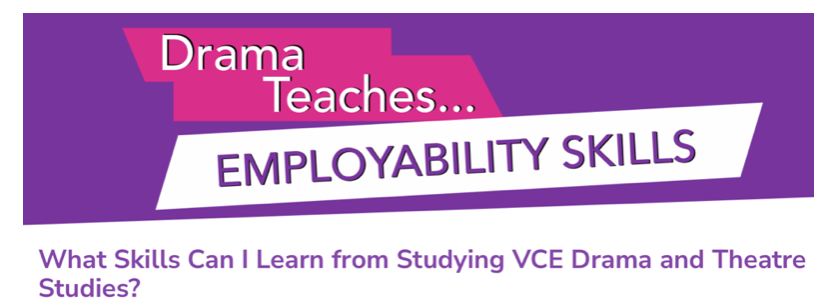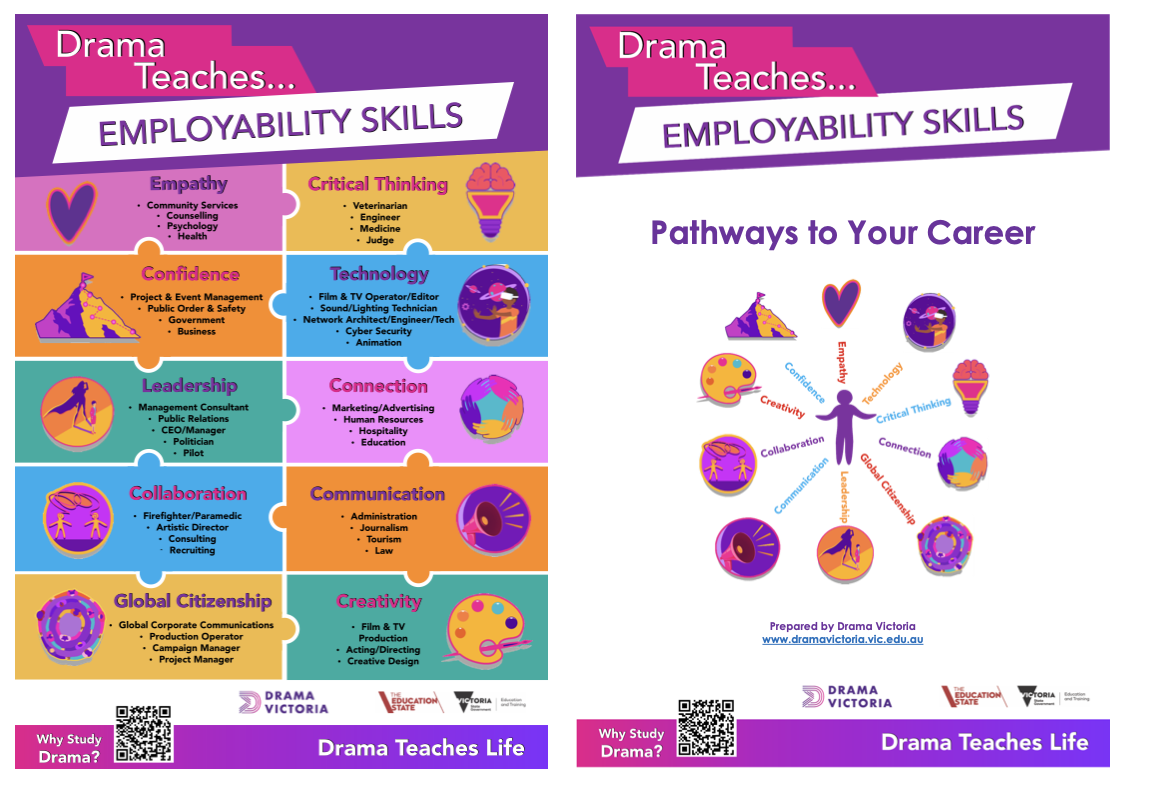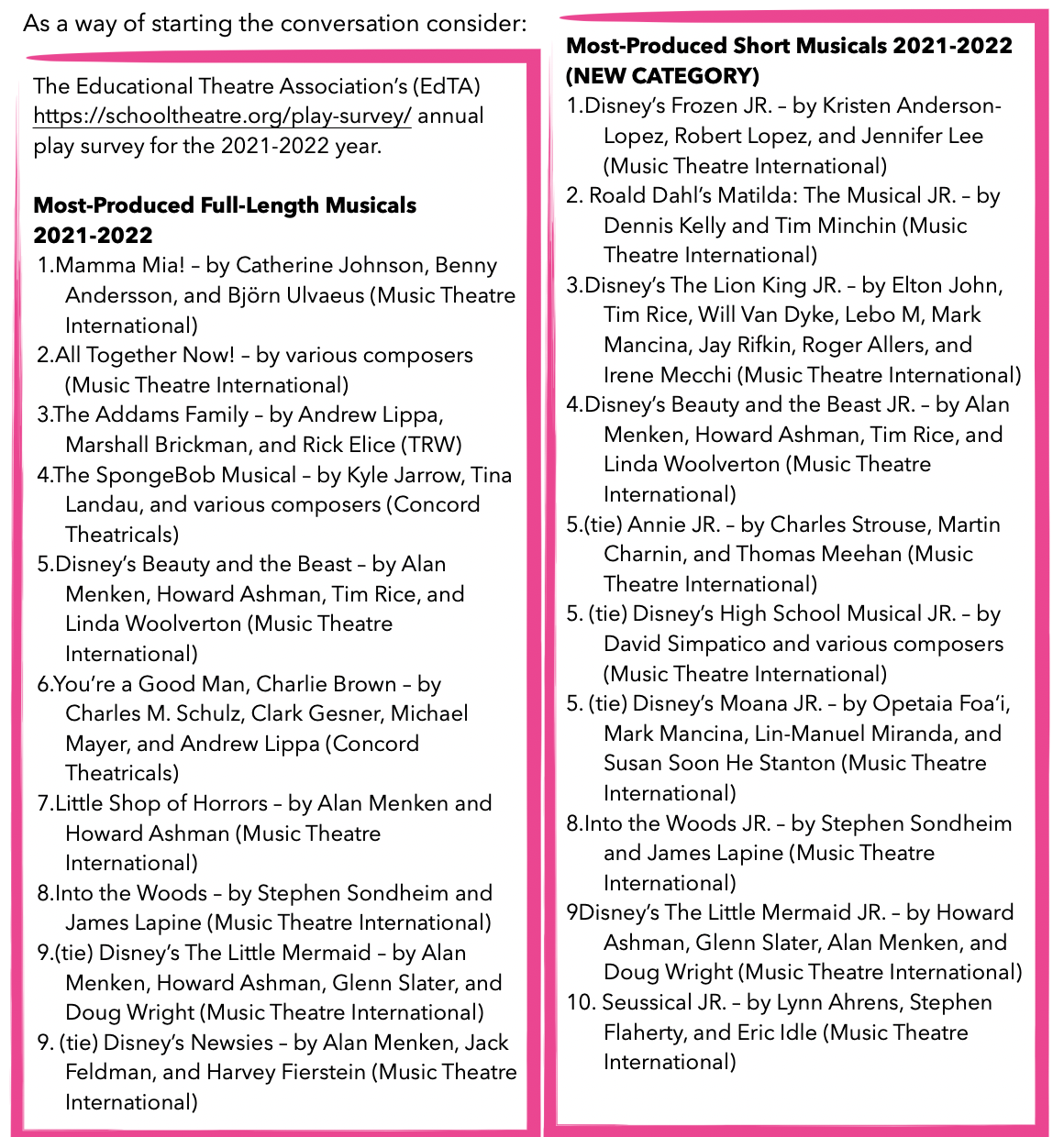Drama Tuesday - Drama teaches life. Drama teaches employability skills.
/Professional Associations are wonderful advocates for drama education. Drama Victoria, a member of Drama Australia, has just published a notable series of videos and posters that promote reasons for studying drama.
It is therefore a pleasure to share the link and recommend this work.
There is a series of short videos covering each of these topics.
These resources are for use by careers guidance counsellors, teachers, parents, guardians and students. The resources consist of a Careers Night compilation video, A3 downloadable posters, core competency case study videos and Drama Teaches Employability Skills Booklet & Course Guide, These resources were produced by Drama Victoria in association with the Australian Centre for Career Education and with funding provided by the Victorian Government Department of Education and Training.
Although pitched for Victorian contexts, this resources is highly recommended for all drama educators.
It is important to acknowledge that the skills noted for drama are also applicable beyond employment fields. They are important for life. It is perhaps a comment on the functionally-focused approach to education taken by some governments. Drama is important because it connects us with our social aesthetic our sensitivity to the nuances in human relationships and adds greatly to the richness of social experience.










